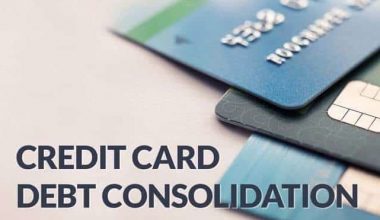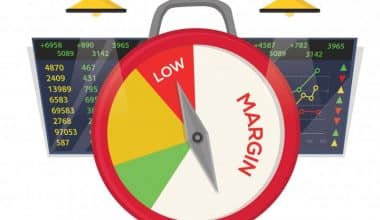Understanding prepayments is vital for financial analysis because it improves your comprehension of your company’s financial situation. What is a prepayment, though? Prepayment is the act of paying off a debt or expense before it is due. In this article, we will explain the meaning of prepayment, prepayment card, penalty, and the best prepayment card.
Prepayment
Prepayment is the accounting term for the payment of a debt or installment loan prior to its due date. A prepayment is the settlement of a bill, operating expense, or non-operating expense that terminates an account prior to its due date. An individual, a business, or any other type of entity can make a prepayment.
Prepayment is a way to pay off many kinds of bills and obligations ahead of time. Corporations may prepay lease payments, employee salaries, revolving credit lines, and other short- or long-term financial commitments. People can pay off their credit card bills before they have a balance. Or, they could pay off a loan early by refinancing it with another company or paying it all off themselves.
Prepayment penalties may be included in several loans, including mortgages. It is the responsibility of the lender to inform the borrower of any prepayment penalties associated with a loan before the loan is taken out. The penalty may only apply if the whole amount is paid off, which is usually done by refinancing the mortgage. Most of the time, a borrower can make extra payments on the capital without being charged extra.
Prepayment Card
Let’s start with the essentials. Prepayment cards are sometimes known as prepaid debit cards, pay-as-you-go cards, or stored-value cards. However, the basic concept remains the same: you purchase a prepayment card and then use it to make purchases.
Prepaid cards are typically available at banks or retail establishments such as grocery stores and drugstores. The cards have either a fixed available balance or the ability to put money on them. The card can then be used until the balance is gone. When the money on the card runs out, you won’t be able to make any more purchases until you reload it.
In some ways, a prepayment card works like other cards. This means that you can swipe or insert it into point-of-sale devices to make transactions and, in some cases, use it at ATMs to get cash.
Prepayment Cards vs. Credit Cards or Debit Cards
A key difference between debit cards and prepayment cards is that debit cards are linked to a bank account, while credit cards are linked to a line of credit. A prepayment card can only be used with funds that have been loaded onto it. You’re not borrowing money, and the card doesn’t take money from any of your other accounts. Therefore, if you want to keep using an empty card, you must reload it with new money.
Why Would You Use a Prepayment Card?
A prepayment card can be useful in a variety of scenarios. Here are a few examples:
- You don’t want to bring cash with you. A single card may be more convenient to carry than a stack of money, and it may also be a safer option than cash.
- You desire an additional level of security. A stolen prepaid card might be easy to use, but unlike a stolen debit card, which might allow an account overdraft, a thief will only have access to the card’s balance.
- You want to keep your expenses under control. A prepaid card might help you avoid spending more than the balance on your card.
- You require an alternative checking account. If you don’t have a bank account but want the convenience of using a card instead of cash, a prepayment card is an option.
- You don’t want to put your credit score in jeopardy. A prepaid card does not require a credit check to be purchased; therefore, it could be a useful short-term credit card option.
Best Prepayment Card
You can use prepayment cards to pay for things without getting a credit card or having a bank account. They work like bank cards in that you can pay bills, set up direct deposit, and use mobile check deposit with them. Prepaid cards are preferable to other types of plastic in part because managing your money with one is a pretty low-risk process. Before adding their children as authorized users on their credit cards, parents can teach their children about money by using prepaid cards. And if you have trouble sticking to a budget, you can use a prepaid card to help you keep track of how much you spend until you are ready for a credit or debit card.
There are many different kinds of prepayment cards to choose from if you want to get one. We put together a list of the best prepayment cards to make the process easy. Below, we explain everything you need to know before you sign up.
#1. Bluebird by American Express
American Express offers Bluebird, a prepayment debit card. It has more features than the average prepaid debit card, and there are no fees to add or spend money.But Bluebird only works at a limited number of stores and doesn’t let you get cash back at those stores.
- General fees and features: There are no monthly fees or charges for internet activation or inactivity.
- Purchases: No fees.
- ATM withdrawals: MoneyPass ATMs are free; other ATMs charge $2.50 plus any ATM operator costs.
- Reloading options: This includes direct deposit, debit card transfers, card-to-card transfers, mobile check deposits (for which a third-party fee is charged for rapid processing), and cash loads at Walmart or other retailers.
- Other services: This includes separate “set aside” accounts for savings as well as up to four sub-accounts for family members.
- Downsides: You can’t get cash back at stores. American Express makes the card, and unlike Visa and Mastercard, it isn’t accepted everywhere.
#2. Fifth Third Access 360° Reloadable Prepaid Card
Fifth Third’s Access 360° prepaid debit card is part of Allpoint’s huge U.S. network and offers access to over 50,000 ATMs. You can only receive this card through Fifth Third Bank locations, which are found in 11 U.S. states.
- General rates and features: This includes a $4 monthly fee that is eliminated if you have a Fifth Third checking account or if you deposit $500 or more per month. There are also no fees associated with activation or inactivity.
- Purchases: There are no costs.
- ATM withdrawals: Withdrawals from Fifth Third Bank and Allpoint ATMs are free of charge, as are withdrawals made using Presto! Publix and 7-Eleven ATMs, as well as those listed on the bank’s website or mobile app, cost $2.75 plus ATM operator fees, at all other ATMs.
- Reload methods: This includes direct deposit, bank transfer, and cash loading at a Fifth Third branch or ATM.
- Other services: Cards can have several owners.
- Drawbacks: The inability to save money on purchases, the card’s limited availability (you can only get it in Florida, Georgia, Illinois, Indiana, Kentucky, Michigan, North Carolina, Ohio, South Carolina, Tennessee, and West Virginia), and the lack of a nationwide retail network for adding funds.
#3. Walmart MoneyCard
The Walmart MoneyCard rewards customers with up to $75 in cash back per year: 3% for purchases made on Walmart.com and in the Walmart app, 2% at Walmart gas stations, and 1% at Walmart stores. The app, which has received positive feedback, is necessary to receive fee-free cash reloads at Walmart locations. Fee-free cash withdrawals are also available at Walmart Money Centers and customer service desks.
This prepaid, reloadable card is ideal for families. You can order accounts for up to four additional people who are at least 13 years old for free. The Walmart MoneyCard comes with a free “Vault” savings option. On the card enrollment anniversary, savings will receive 2% APY up to $1,000.
Because it is not part of an ATM network, ATM withdrawals will cost you $2.50 in addition to any operator fees.
- General fees and features: a $5.94 monthly fee waived with a $500 monthly deposit; a $1 starter card purchase fee if purchased in-store; and no inactivity fees.
- Purchases: There are no fees.
- ATM withdrawals: $2.50 plus any applicable operator fees.
- Reload methods: It involves adding cash at Walmart stores using the Walmart MoneyCard app; mobile check deposit; adding funds from checks cashed at Walmart stores; reloading cash at a Walmart store for $3; and reloading anywhere for up to $4.95.
- Other services: up to four free additional accounts; a savings account with a 2% APY for the first $1,000 and chances to win monthly cash prizes; the ability to lock and unlock your card through the app; and text and email alerts.
- Downsides: ATM fees; restricted options for reloading funds.
Prepayment Penalty
A prepayment penalty is usually written into a clause in a mortgage contract. The clause says that a penalty will be charged if the borrower greatly pays down or pays off the mortgage before the end of the term, usually within the first three years of taking out the loan. The penalty is sometimes a certain number of months’ worth of interest or a certain portion of the amount still owed on the mortgage. When you pay off a loan early, you have to pay a penalty. This keeps the lender from losing money on the interest that would have been paid over time.
How a Prepayment Penalty Works
Lenders include prepayment penalties in mortgage contracts to reduce prepayment risk, especially in bad economies and when subprime borrowers are motivated to refinance. These penalties apply regardless of loan repayment. If the borrower pays a lot of the loan balance at once, some penalties apply.
A prepayment penalty can prevent a risky borrower from refinancing or selling a home within three years of closing. When a mortgage is promoted with a lower-than-average interest rate, prepayment penalties may be applied to reclaim some profit. At mortgage closing, lenders must disclose prepayment penalties. Such penalties cannot be imposed without the borrower’s consent or knowledge. However, borrowers should know about prepayment penalties before closing. If the lender hasn’t said anything about it, buyers should ask right away.
Limitations of Prepayment Penalties
Prepayment penalties may be included in some mortgages, although they are not permitted in FHA loans for single-family homes. Lenders are only permitted to impose prepayment penalties on other house loans during the first three years, with restrictions on the severity of the penalty. Additionally, the lenders are required to provide a loan option without a prepayment penalty. Following the passage of the 2010 Dodd-Frank Act, the Consumer Financial Protection Bureau (CFPB) established these regulations, which are in effect for loans issued after January 10, 2014.
Military personnel receiving student loans or mortgages from the VA are not subject to prepayment penalties.
Is a Prepayment a Debit or Credit?
A prepayment is recorded from the buyer’s perspective as a credit to the cash account and a debit to the prepaid costs account. When the prepaid item is ultimately used, the prepaid expenses account is credited and the appropriate expense account is debited.
What Are the Two Types of Prepayments?
They are classified into two types: complete prepayments and partial prepayments. A complete prepayment is a payment for the entire balance of responsibility before its formal due date, whereas a partial prepayment is a payment for only a portion of the balance of a liability.
Who Benefits in Prepayment?
Prepaid expenses help people make sure they won’t forget to pay for things like health insurance. If they require more business deductions, many businesses prepay a portion of their future expenses.
How Do You Calculate Prepayment?
To achieve 2.5 percent, first divide the yearly interest rate in half. For interest to be paid in six months, multiply this amount by the balance still owing. This would come to $3,750 ($150,000*0.025). To calculate the prepayment penalty, multiply this result by 80%.
How Does Prepayment Affect Loan?
Prepaying your mortgage entails sending additional funds to your lender in order to reduce the loan’s principle. This enables you to pay off your loan sooner and save money by lowering interest costs.
References
Related Articles
- PREPAYMENT PENALTY MORTGAGE: How It Works
- PREPAYMENT PENALTY: Car, Mortgage & Prepayment Loan Penalties
- PAYING OFF MORTGAGE EARLY: Benefits, Calculations, Penalty, & Tax Implications
- Refinancing A Car Loan: Best Easy 2023 Guide & All You Should Know
- WHAT IS A PAY CARD: Best Pay Cards, How to Get It & Difference.






